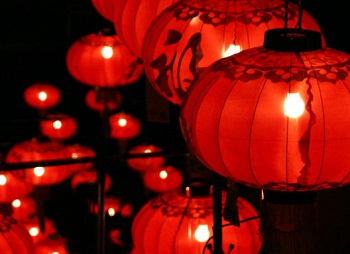Mobile commerce surges in China during the Lunar New Year
New Year’s celebrations lead to more mobile spending throughout China
The Lunar New Year has come and gone and mobile commerce surged during the Chinese holiday. During the Lunar New Year, those living in China send one another traditional red packets, called hong bao. These red envelopes typically contain money and is something that many people look forward to receiving every year. With the emergency of mobile technology, the way people give hong bao to one another has changed, which has been good news for mobile commerce in general.
Payment platforms enable consumers to send and receive hong bao efficiently
Both WeChat and Alipay enable people to deliver hong bao cards to one another. Both platforms have become very popular in China, as they allow people to make purchases and send money to others. These two platforms have allowed mobile shopping to thrive in China and have given their owners, Tencent and Alibaba respectively, a competitive edge over those that would try to enter into China’s mobile commerce market. During the Lunar New Year, the platforms proved to be particularly effective in serving mobile consumers.
The number of hong bao being send through mobile services continues to rise ad mobile payments become more common
 According to Tencent, more than 8 billion hong bao cards were exchanged during the Lunar New Year. This is eight times more than the number of hong bao that were sent last year. This is actually a trend that has been seen over the past few years. More consumers are becoming mobile-centric, which is making them more comfortable with the concept of mobile payments and how their devices can be used to connect with one another.
According to Tencent, more than 8 billion hong bao cards were exchanged during the Lunar New Year. This is eight times more than the number of hong bao that were sent last year. This is actually a trend that has been seen over the past few years. More consumers are becoming mobile-centric, which is making them more comfortable with the concept of mobile payments and how their devices can be used to connect with one another.
China continues to be an attractive mobile commerce market for many
This year, the hong bao may highlight the growing importance of mobile payments systems, as well as their value. During the third quarter of 2015, China’s mobile commerce space was valued at approximately $368 million. The country is considered the fastest growing mobile payments market in the world, attracting the attention of other companies that are in this sector.

